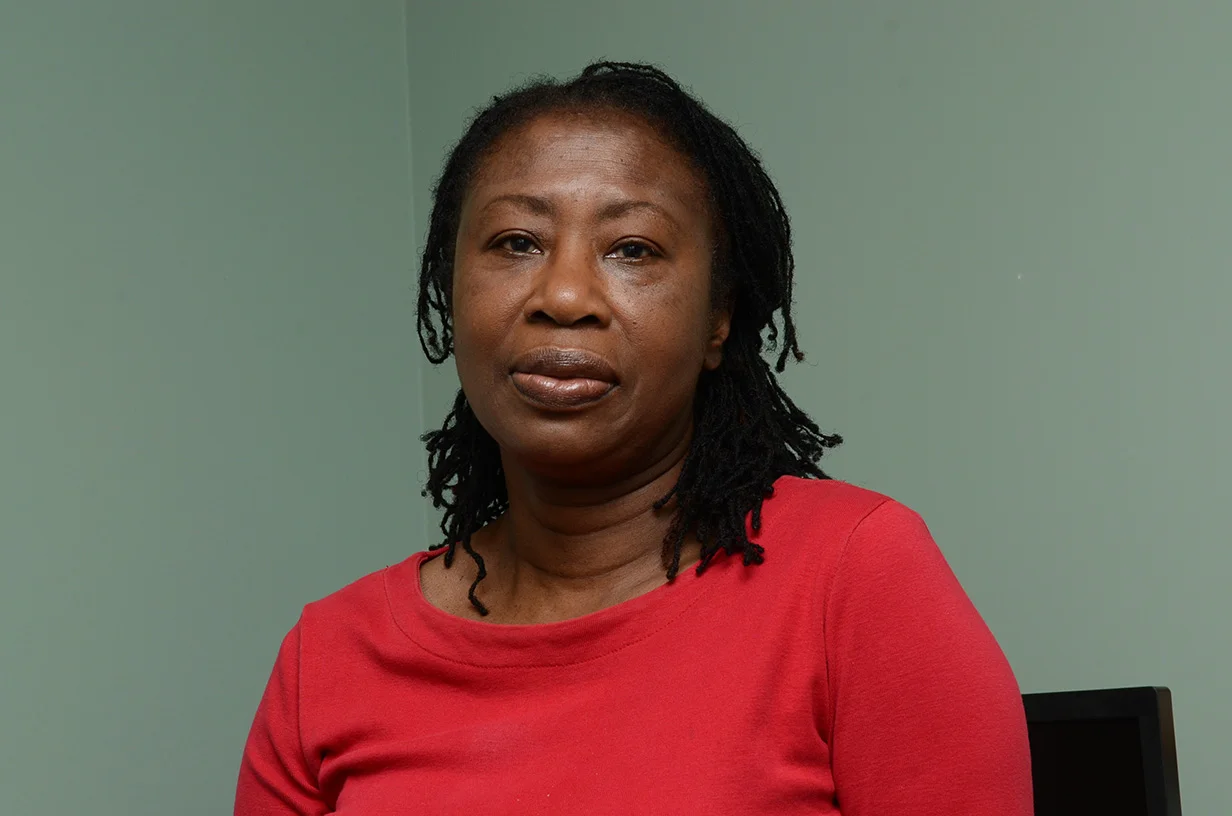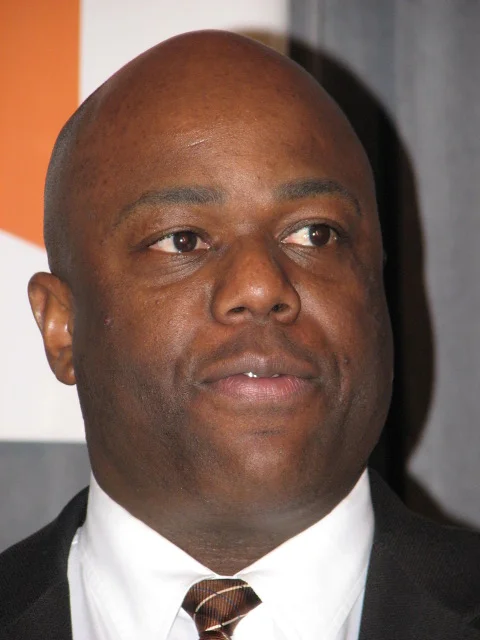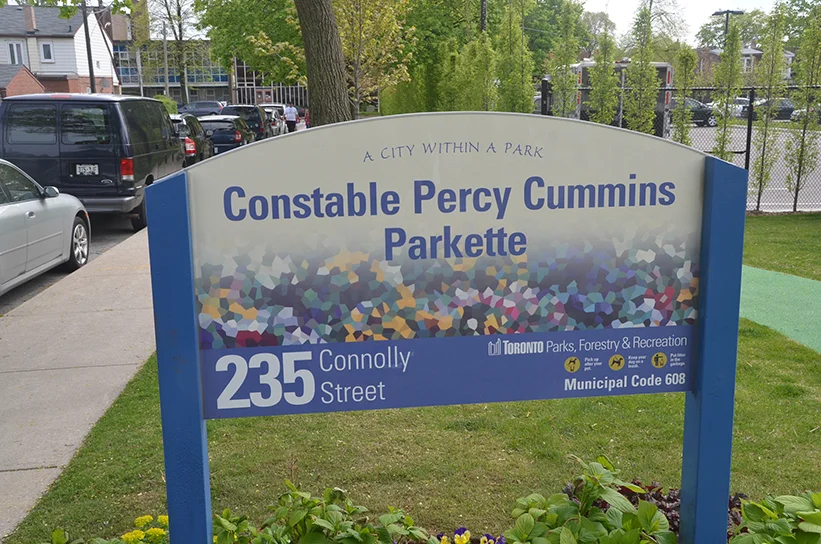Ezra Browne retires after three decades of service
Some old wounds never heal and are quick to bleed at the slightest word.
Just hours before he ended 35 years of distinguished service last Friday with York Regional Police Service (YRPS), Staff Sergeant Ezra (Tony) Browne was reflecting on his time with recently promoted superintendent Keith Merith when the conversation turned to an incident that occurred in another police jurisdiction nearly three decades ago.
In December 1988, Michael Wade Lawson – a 17-year-old Black youth – was shot and killed by a Peel cop.
An autopsy conducted by the Ontario Coroner's office showed that the unarmed teenager was struck by a hollow-point bullet to the back of the head.
A few days after the shooting, Browne – who was a member of his Service’s morality squad at the time – was with Merith when he received an inter-office envelope with his name. Inside was a small white unstamped envelope which, when opened, revealed a hollow-point bullet.
“I cried again last week in the presence of Keith when we spoke about that episode,” he said. “You never forget those things.”
Browne’s complaints to his superiors fell on deaf ears.
“I was told to keep them to myself and go back to work,” he said. “Nobody would listen and nobody cared about the psychological effect that had on me.”
While he was the fourth Black officer to join the Service, Browne was the only one with the intestinal fortitude to stay the course.
Turned down by Toronto Police Service on several occasions and the Ontario Provincial Police once, Browne’s first application to York was successful. Once on the job, he was subjected to racial abuse and taunts by senior and junior officers in the early days.
“It was in your face and there was not much you could do about it because that was the culture of the day,” said Browne. “Though I never thought about walking off the job, there were times where I got angry to the point that I felt like punching someone. On one particular occasion, a White officer told another member in front of me that I am his n _ _ _ _ r. On other instances, I was called a monkey and other derogatory names. Those things were very hurtful and there were many days when I went home, cried and prayed. I however pulled myself together after each jolt, remained strong and just hung in there.”
Leroy Chance was the first Black officer YRPS hired in the early 1970s followed by Sabastian Glodon who lasted 23 months and late detective Calvin Ceballo. Chance spent a few years on the job before quitting while Ceballo left in 1982 and returned to his native Trinidad & Tobago where he died two years later. Ceballo’s daughter – Deborah Gladding – is a detective constable in Richmond Hill.
“It was very lonely when I got there and it did not help that Calvin left a few months after I joined,” recalled the longstanding ABLE member. “He was very supportive and someone I could lean on.”
Browne leaves the Service much better than he found it when he arrived on November 2, 1981.
Race relations have improved and there is a Black deputy chief (Andre Crawford), two superintendents (Robertson Rouse and Keith Merith) and an inspector (Chris Bullen).
Browne served under seven Chiefs, including now-retired Armand LaBarge, who embraced the principles of equity and diversity and was a major catalyst for change, ensuring that the Service reflected the diverse community it serves.
The first Black officer to retire from the Service, Browne has left his mark on the organization.
A key member of the “Recruit with a Vision” team provided with the task of making diversity a core cornerstone of the Service, he also played a leading role in the establishment in 2000 of the Corporate Communication Bureau that addresses public relations, media and hate crimes issues. He managed the bureau for three years before leaving.
In addition, he co-ordinated the Service’s Black History Month and International Day for the Elimination of Racial Discrimination events and used his vacation to travel with LaBarge and other officers to Jamaica on a few occasions to assist the poor and orphans in Trench Town and other Jamaican communities.
The YRPS adopted the missions after one of its officers – Davis Ahlowalia – was killed in a vehicular accident in Woodbridge in January 2007. Ahlowalia worked with the poor and disadvantaged in Jamaica and India and spearheaded a fundraising campaign for an orphanage in Jamaica with the Missionaries of the Poor, an organization founded by Father Richard Ho Long in 1981.
One of nine children born in St. Vincent & the Grenadines, Browne followed the footsteps of his father who was a police officer in Aruba. However, he was turned on to policing a decade after arriving in Toronto in 1968.
At age 10, Browne was sent to neighbouring Trinidad & Tobago to stay with his uncle and aunt. He spent nine years in Diego Martin before returning home to find out that Canada was recruiting nationals from the island. His application was successful and he landed in Toronto on a cold November day 48 years ago.
“I stayed in a hotel on Bay St. for two weeks before being able to rent a room on Vaughan Rd.,” said Browne, who as vice-chair of the Council of Police Against Racism collaborated with the Ontario Police College (OPC) to organize the first diversity education and training in anti-discrimination and diversity issues in policing workshop at the OPC. “I was on my own since I did not have any family or friends, but I took the chance to come here because I recognized there was an opportunity for me to uplift myself.”
Browne worked full-time in a furniture factory for almost six years and part-time on weekends in a nursing home as a practical care assistant after securing his practical nursing assistant certification. Unable to accept entry to law school at the University of the Toronto because he did not have the funds, Browne spent a few years with the City of Toronto Parks & Recreation maintaining ice rinks and outdoor parks before joining the then City of York Board of Education as a security caretaker.
“It was while I was there that my interest in policing developed because I would often talk to the officers at Toronto Police 12 Division which was stationed behind my workplace,” he said.
The holder of a Master’s in criminology from the University of Guelph-Humber, a Bachelor’s degree in justice studies from the University of Guelph and a police foundations diploma certificate from Humber, Browne has been conferred with several awards for distinguished service and bravery.
In 2000, he jumped into Lake Ontario to rescue several people who encountered difficulties while boating. The father of five was presented with the Ontario Medal for Police Bravery for his daring and heroic efforts. He’s also the recipient of the St. John Life Saving Award, the Human Rights & Race Relations Gold Medal for Outstanding Contribution to the Promotion of Race Relations, the Chief of Police Award for Dedication to the Chief’s Staff and the YRPS 30-year Service Medal.
Despite the obstacles and challenges at the frontend of his career, Browne – who has a passion for photography and cricket – said he has enjoyed his time with the Service.
“I am going to miss this place because the members were like my extended family,” he said. “There are a lot of good people and I have many fond memories.”
He plans to relax, travel and continue to serve in the community.
“The only difference between my last day on the job and my first in retirement is that I am now operating on my time,” added Browne. “That’s a great feeling.”






